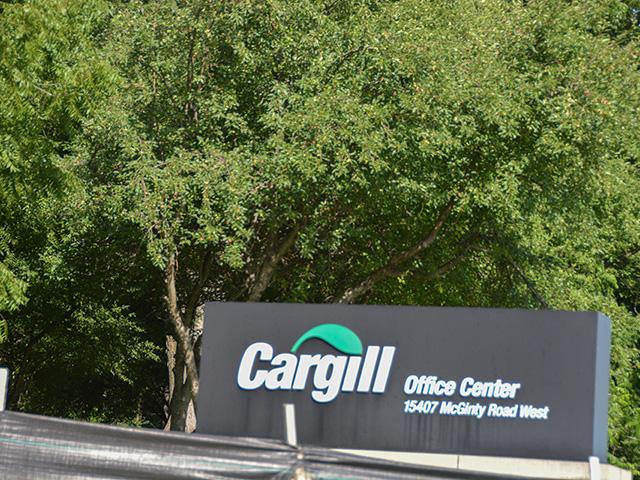Letters to the Editor
The Re-Green Evolution
To the Editor:
Biotalys is an Agricultural Technology (AgTech) company protecting crops and food with proprietary protein-based biocontrol solutions and aiming to provide alternatives to conventional chemical pesticides for a more sustainable and safer food supply. It has offices in Ghent, Belgium, and Durham, North Carolina.
Modern food production -- from the farm to the fork -- is generally defined by optimizing efficiencies and productivity and keeping costs low. But other costs of a global food system highly dependent on fossil fuels -- from chemical-based fertilizers and fertilizer to harvesting and transport -- as well as harder to measure environmental and societal costs throughout the value chain -- should also be part of the conversation as society evaluates how the food we eat is produced.
Ultimately, we need to realize that we no longer have a choice. Sustainable, regenerative agriculture practices will undoubtably incur greater costs, which must be shared fairly by all. Because the true cost of inaction is far greater.
That's why more focus on, and research and investment in, sustainable agricultural solutions is needed to minimize environmental impact at scale, reliably address crop pests and diseases, and give farmers and growers cost-effective options for preventing crop loss and curbing the massive global challenge of food waste.
It starts with us. This isn't a green revolution, it's a "re-green" evolution that requires a change in consumer mindset. It's about coming back to the earth and understanding that what we put into the soil -- and our bodies -- matters. It's about educating our children about which crops will make the greatest impact, while leaving the smallest footprint. And it's about making purchasing decisions that reflect this heightened awareness.
P[L1] D[0x0] M[300x250] OOP[F] ADUNIT[] T[]
It's time for each of us to ask the hard questions: "Am I paying the right price for the food I consume, or am I contributing to the planet's demise by choosing the cheapest, most convenient options?"
For example, how can I pay only 0.99 euros for a bunch of five bananas in most European supermarkets today? And what does that ridiculously low cost mean for the growers and their families, far away from Europe? How can an endangered crop threatened by fungal diseases, where dozens of chemical sprays are being used per season, and that requires travel halfway around the world cost me so little? The disparity between the cost to purchase healthy, fresh fruits and vegetables and the cost to produce and ship it, is too big to ignore. If the chemical sprays are considered more cost effective and a bunch of bananas is selling for 0.99 euros after shipping them to other continents, how can we expect farmers to take on the cost of sustainable agriculture on their own?
If we choose to continue our unsustainable food choices, we should be prepared to pay a premium food cost as well, such as the example set by increased rates for high-emissions vehicles already enforced by some countries today.
Farmers need support. Of course, this shift won't happen overnight -- no major cultural change ever does. In the meantime, farmers critically need support. We also need to work with existing solutions to ensure a sustainable transition for the industry. Integrated pest management programs are a great example of multi-layer leverage of technologies and farming practices to decrease impact on the environment while maintaining yield and return for growers.
It's not enough to increase regulations and set lofty emissions goals without providing a practical path forward. Governments must also actively incentivize farmers to make more sustainable choices, such as using safer, nature-based food protection methods, and track their progress using metrics tied to the United Nations' 17 Sustainable Development Goals.
Investors must get on board. Consider these Finance for Biodiversity (F4B) Initiative statistics: just 10 companies own half of the world's seed market; four agribusiness companies control 90% of the global grain trade; and 65% of farmland is owned by 1% of farming businesses. It's clear that for far too long, the financial market has driven negative food system impacts.
While price competition will always be a major decision-making factor, the sustainable finance community, and private sector agtech investors more specifically, must start looking more broadly at how new innovations ultimately impact the planet and our fragile food system. If those who know the space best cannot get behind this holistic mindset, how can we expect others to embrace it?
Similarly, the price of agricultural practices and crop protection solutions -- conventional or nature-based -- must evolve to not only reflect market demand, but also overall environmental impact and performance.
Looking ahead: A more sustainable cycle from farm to fork. A true shift to sustainable agriculture must come at every level: starting with the consumer and extending to policymakers and investors -- it cannot be driven solely by the cost of raw materials. This means we all must pay more for the food we eat. And workers across the food supply chain -- from farmers to drivers and processors, to retailers and food service providers -- must be adequately compensated so they can embrace more sustainable methods that put healthier, safer food on our plates while minimizing overall food waste.
If we don't recognize how precious our food is and properly pay for what we eat, it is our planet that we will continue to devour.
Patrice Selles
CEO, Biotalys
**
Letters may be emailed to edit@dtn.com or mailed to Greg Horstmeier, 18205 Capitol Avenue, Omaha, NE 68022.
(c) Copyright 2022 DTN, LLC. All rights reserved.



